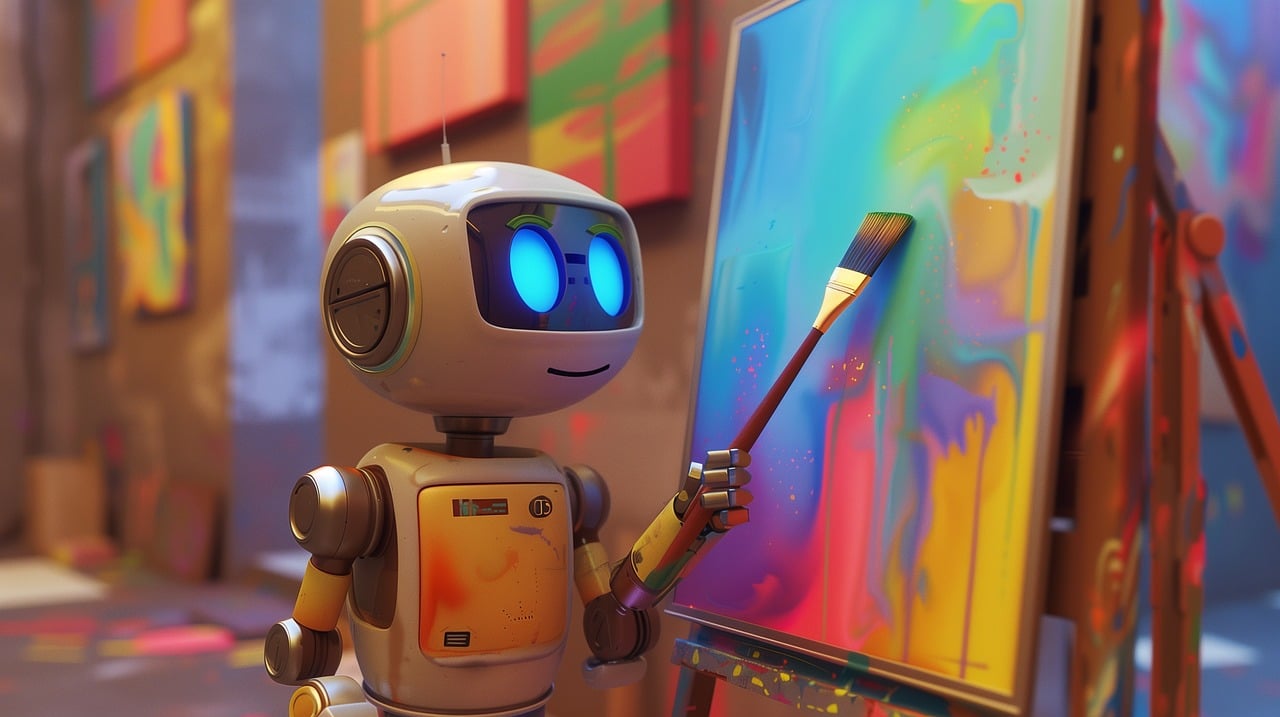- Vishnu Inugala
- October 2024
- Artificial Intelligence
Introduction:
Artificial Intelligence (AI) has rapidly evolved over the past decade, transforming industries, improving business processes, and reshaping the way we live. From virtual assistants like Siri and Alexa to self-driving cars and advanced healthcare diagnostics, AI is already playing a crucial role in our lives. But what does the future hold for AI? In this blog, we’ll explore key trends, breakthroughs, and predictions shaping the future of artificial intelligence.
1. AI and Automation: Revolutionizing Industries
As AI technology advances, automation will become even more widespread across industries. AI-powered systems will streamline repetitive tasks, optimize workflows, and enhance efficiency in areas like manufacturing, logistics, and customer service. While there are concerns about job displacement, new roles in AI development, management, and ethical oversight will emerge, potentially reshaping the workforce landscape.
Key Predictions:
- AI will automate 40-50% of repetitive tasks in industries such as retail, banking, and manufacturing.
- By 2030, companies heavily using AI are expected to see productivity gains of 20-30%.
2. AI and Healthcare: Improving Patient Outcomes
One of the most promising applications of AI is in healthcare. AI is set to revolutionize diagnostics, treatment plans, and drug development. Machine learning algorithms can analyze medical data to detect diseases early and recommend personalized treatment plans. AI-powered robots may assist in surgeries, making procedures more precise and less invasive. With these advancements, the future of AI in healthcare looks bright.
Key Predictions:
- AI-driven diagnostics could reduce misdiagnosis rates by 30-40%.
- Personalized medicine will be widely adopted, improving patient outcomes by providing tailored treatment strategies.
3. Ethical AI: Balancing Innovation with Responsibility
As AI becomes more integrated into society, ethical concerns around data privacy, bias, and transparency are growing. The future of AI will involve establishing frameworks for responsible AI use. Governments, organizations, and AI developers will need to work together to ensure that AI systems are fair, transparent, and secure. New regulations will emerge to address the ethical implications of AI in areas such as surveillance, decision-making, and autonomous weapons.
Key Predictions:
- Governments will introduce strict regulations to ensure AI is used responsibly in areas like law enforcement, healthcare, and finance.
- AI ethics boards will become standard in organizations, guiding the development and deployment of AI technologies.
4. AI in Education: Personalized Learning
AI is poised to revolutionize education by providing personalized learning experiences. AI algorithms can analyze student performance, adapt learning materials to individual needs, and offer real-time feedback. AI-powered tutoring systems will provide 24/7 assistance to students, making education more accessible and tailored. This could help bridge the education gap and improve learning outcomes worldwide.
Key Predictions:
- AI-powered personalized learning platforms will become mainstream in schools and universities.
- Virtual classrooms and AI tutors will offer flexible learning environments, allowing students to learn at their own pace.
5. AI and Creativity: Redefining Art and Content Creation
AI’s ability to analyze patterns, generate creative ideas, and even produce original content is transforming industries like entertainment, design, and marketing. AI-generated art, music, and writing are already gaining attention, raising questions about the future of creativity. Rather than replacing human creativity, AI is expected to complement it, serving as a tool for artists and creators to push the boundaries of what’s possible.
Key Predictions:
- AI will play a prominent role in content creation, assisting marketers, writers, and designers in generating innovative ideas.
- Collaborative AI-human creative projects will become a new frontier in the entertainment and arts industries.
6. AI and Sustainability: Tackling Global Challenges
AI has the potential to address some of the world’s most pressing challenges, including climate change, energy management, and resource conservation. Machine learning algorithms can help optimize energy usage, reduce carbon footprints, and predict environmental changes. In the future, AI will be crucial in developing sustainable solutions that benefit both businesses and the planet.
Key Predictions:
- AI-driven climate models will improve accuracy in predicting environmental changes, helping policymakers make better-informed decisions.
- AI systems will optimize renewable energy usage, reducing global carbon emissions by up to 10-15%.
7. AI and Human Augmentation: Enhancing Human Capabilities
The concept of AI augmenting human capabilities is gaining momentum. AI-powered exoskeletons, brain-computer interfaces, and wearable devices will enhance physical and cognitive abilities. This could lead to significant breakthroughs in fields like medicine, where AI might assist people with disabilities in regaining mobility or improving cognitive function.
Key Predictions:
- Brain-computer interfaces will allow humans to communicate with AI systems directly, enhancing cognitive abilities and learning processes.
- AI-powered wearables and prosthetics will improve quality of life for individuals with disabilities.
Conclusion: A Future Powered by AI
The future of AI is bright, with endless possibilities across industries and daily life. As AI continues to evolve, it will reshape the way we live, work, and interact with technology. However, the future of AI also brings challenges, particularly in terms of ethics, privacy, and job displacement. Balancing innovation with responsibility will be key to ensuring that AI’s benefits are shared widely and fairly.
Embracing AI’s potential while navigating its complexities will define the next decade. AI won’t just be a tool; it will be a partner in shaping a smarter, more efficient, and equitable world. The question is not whether AI will shape the future—but how we will shape AI’s role in it.

